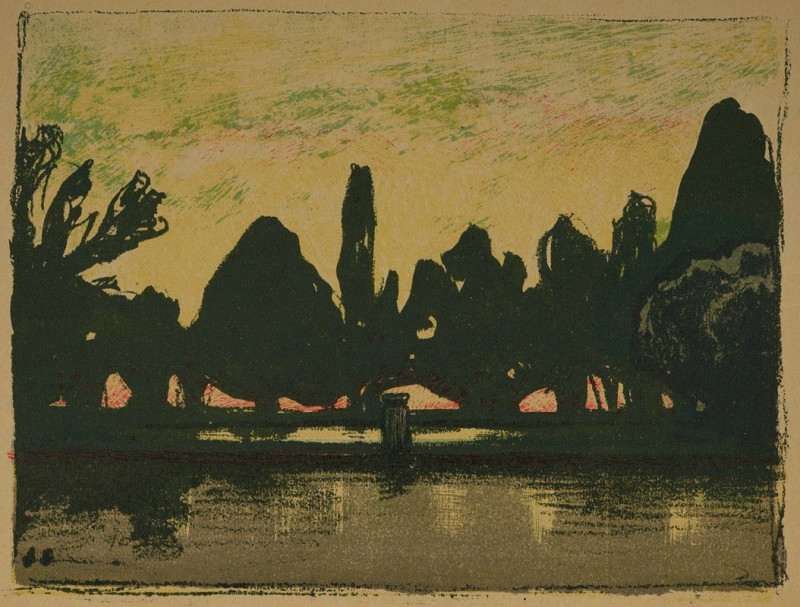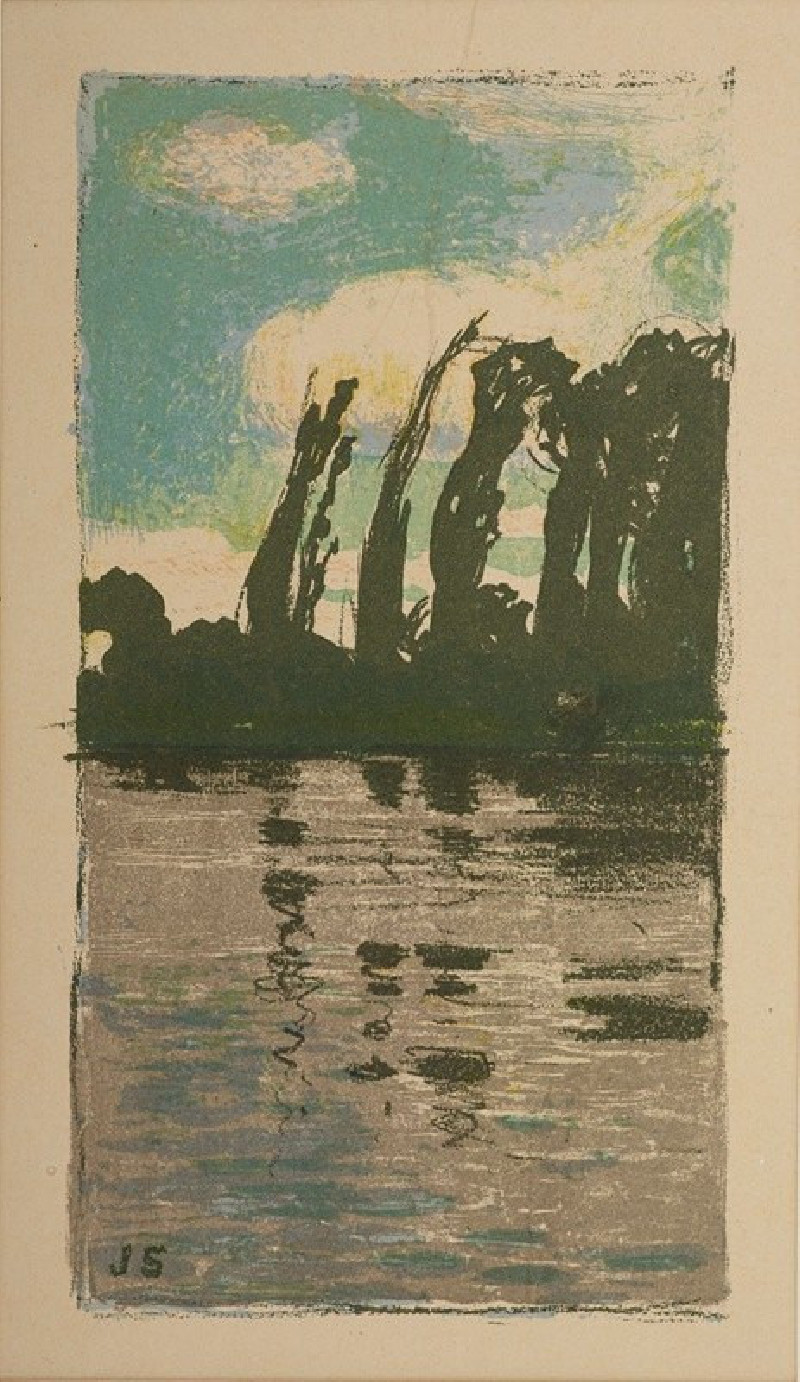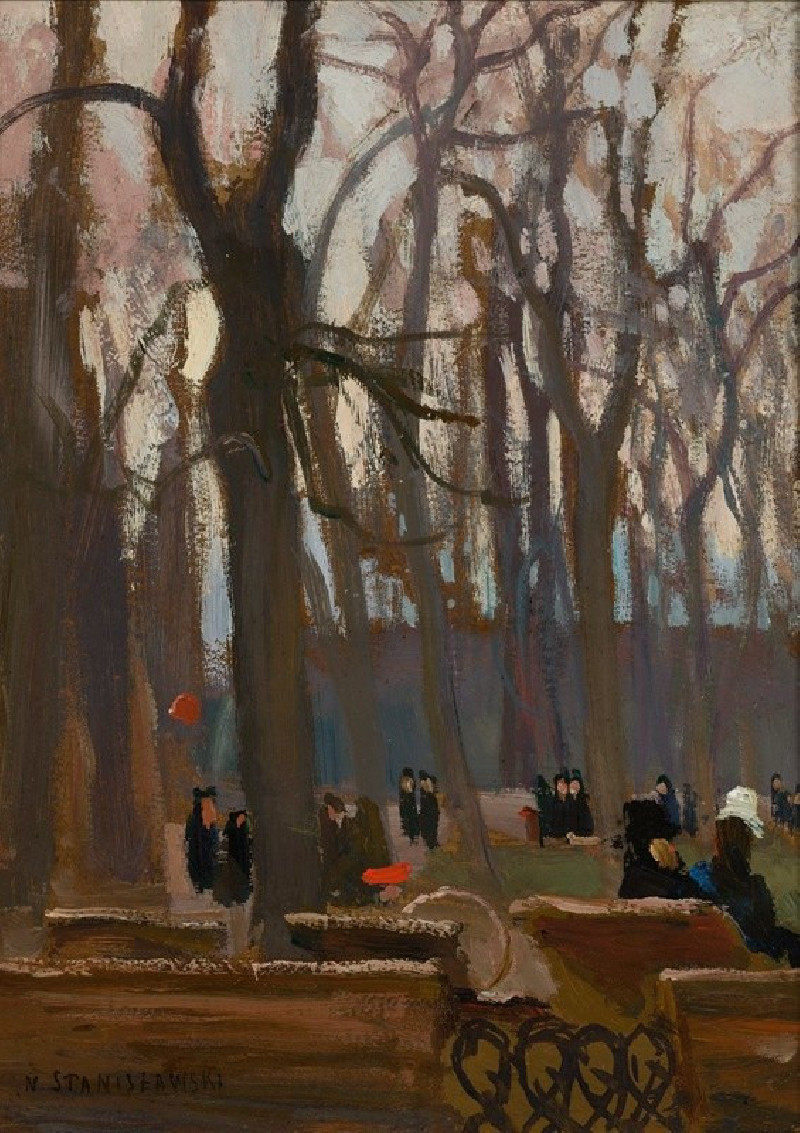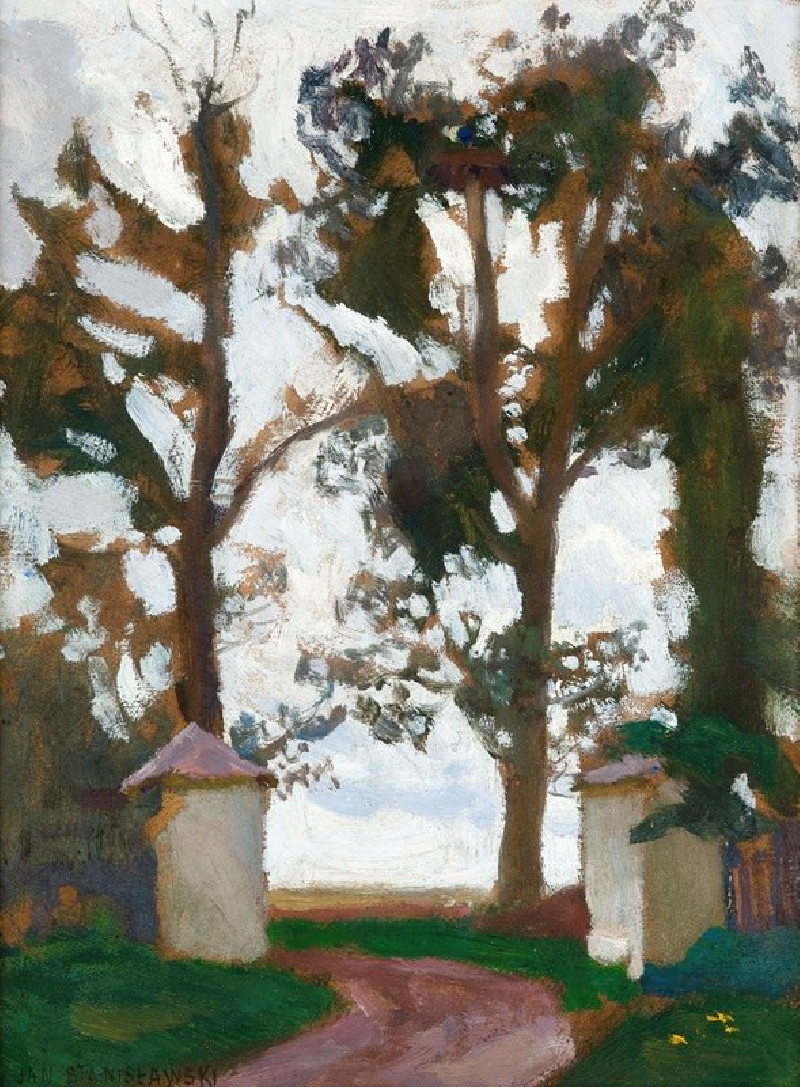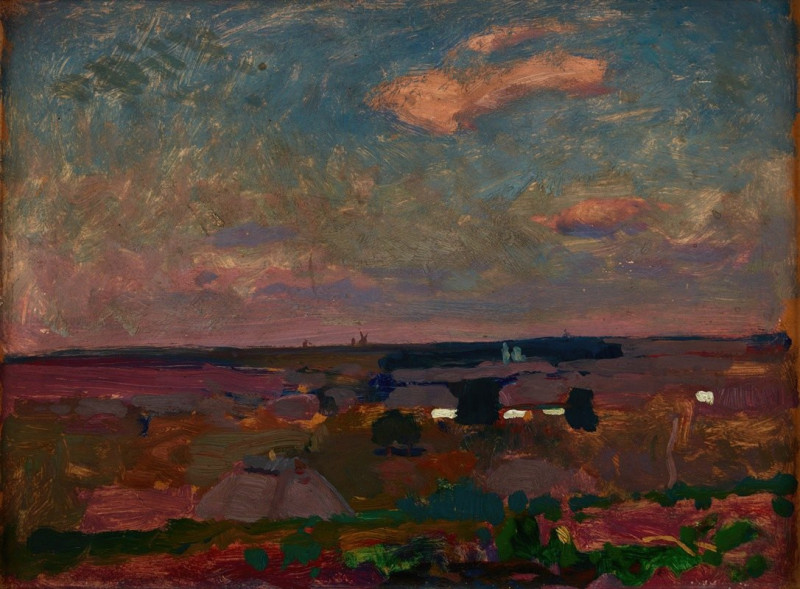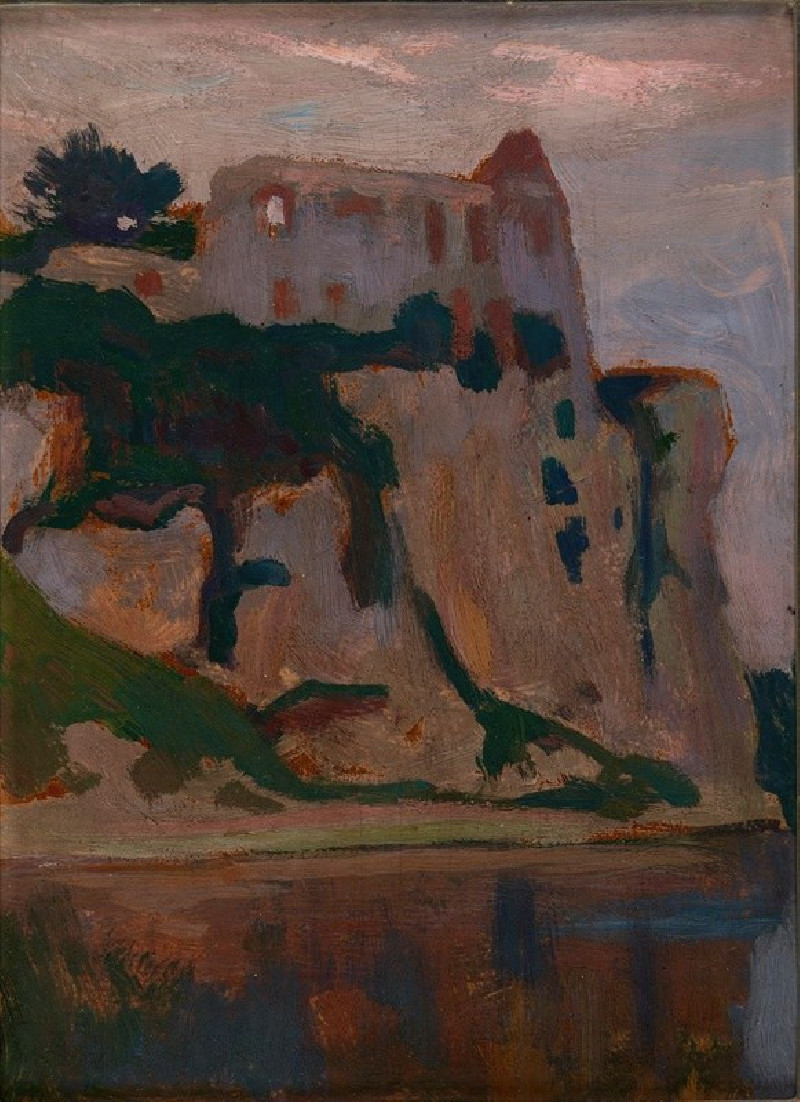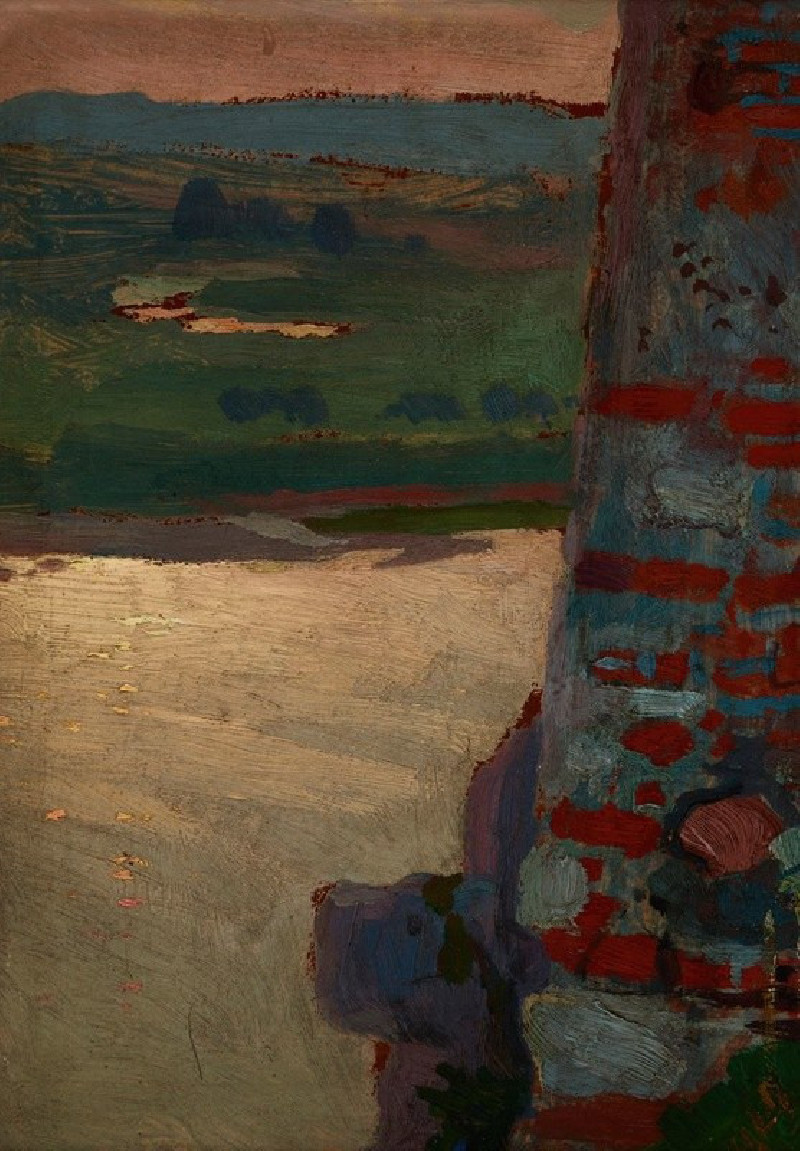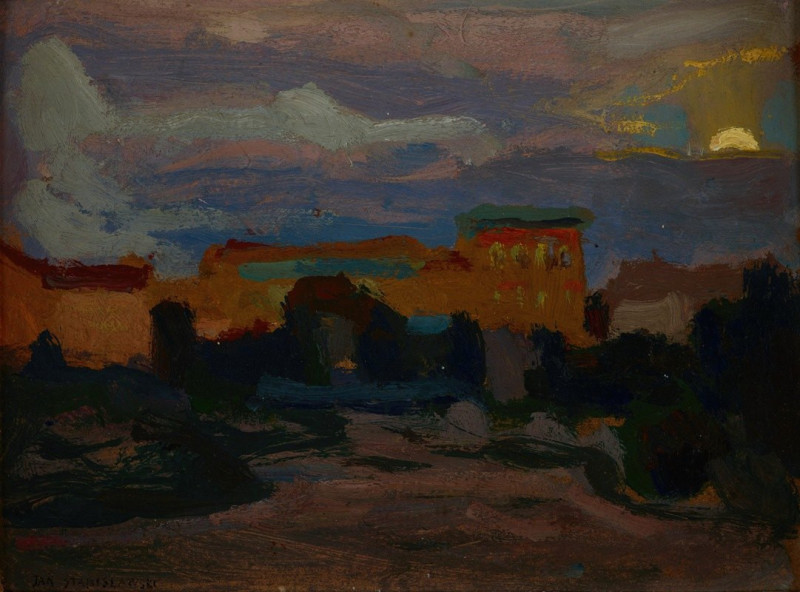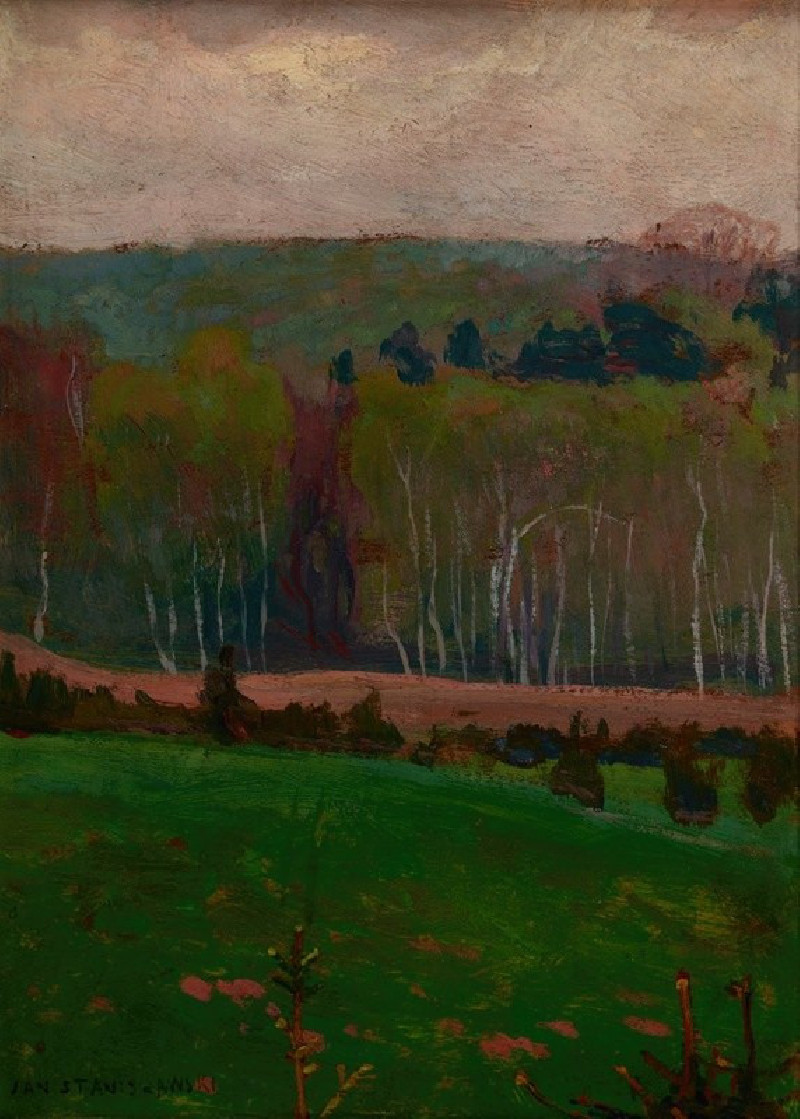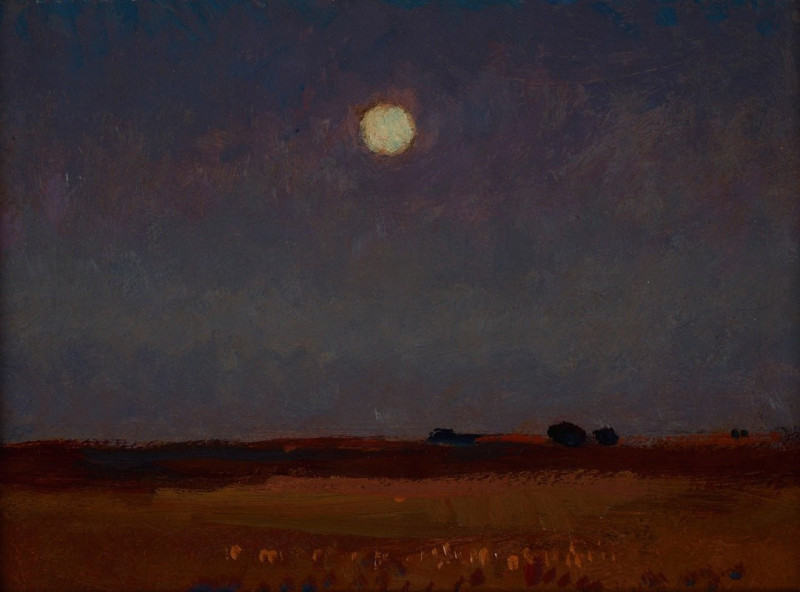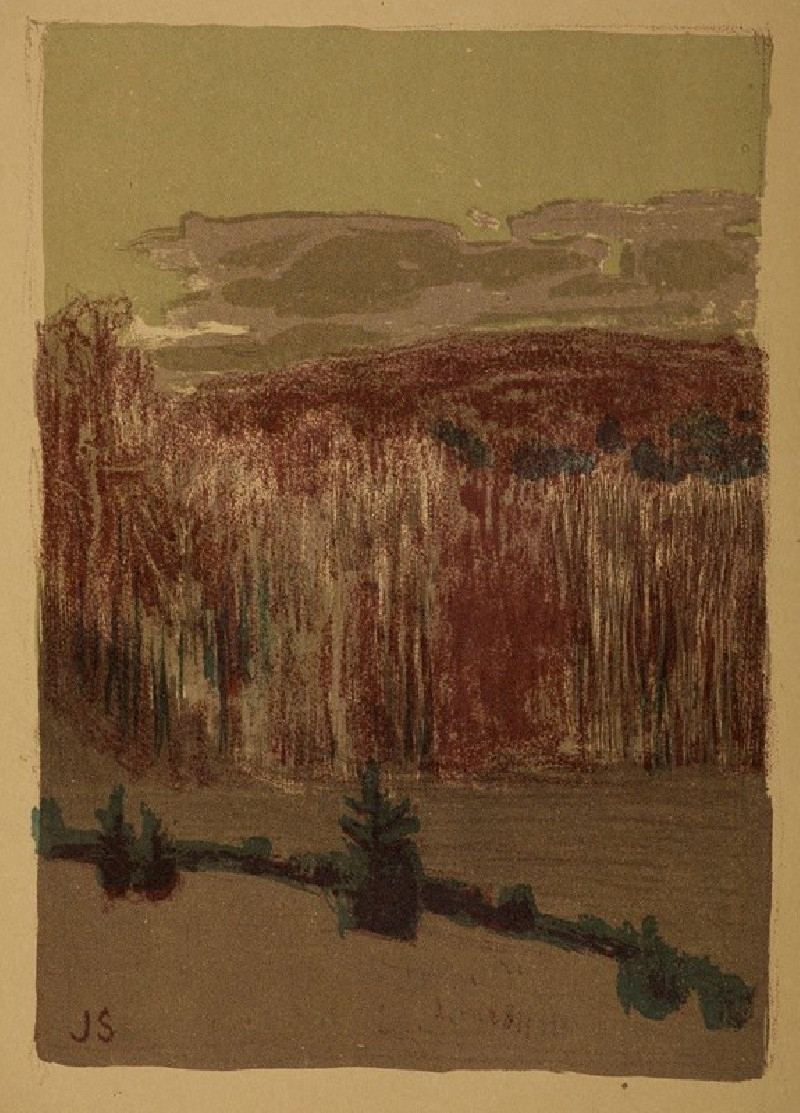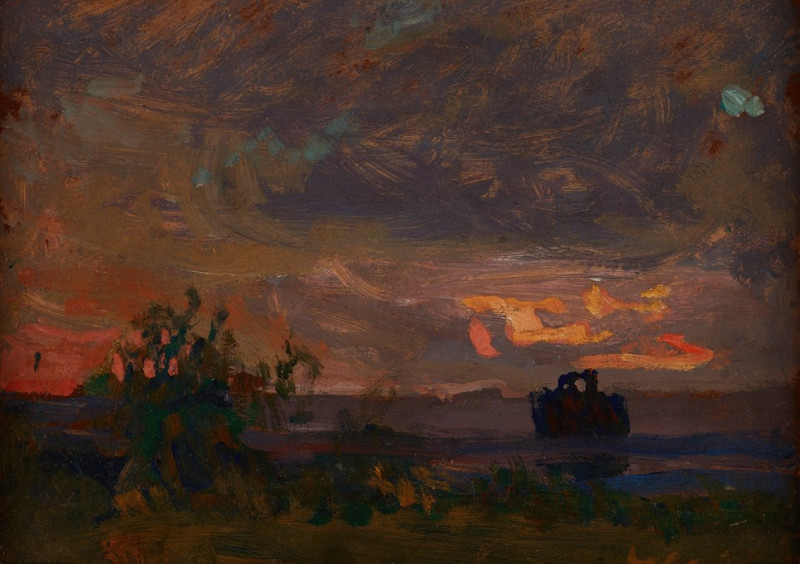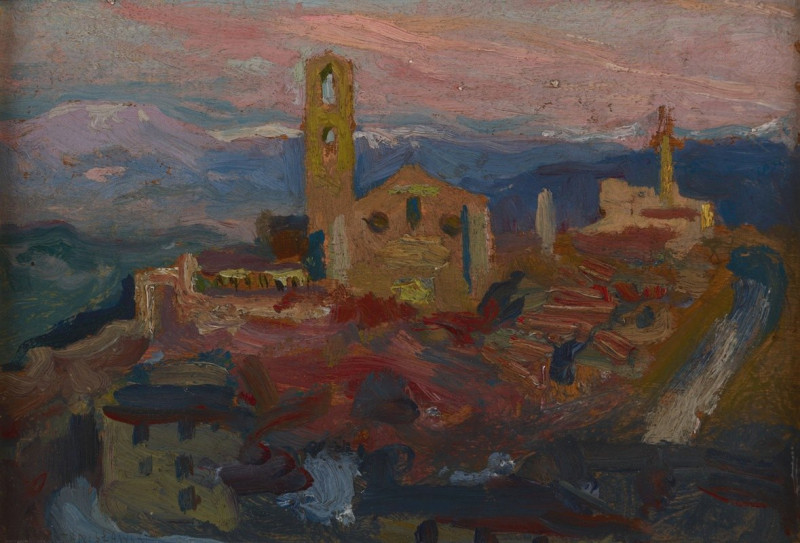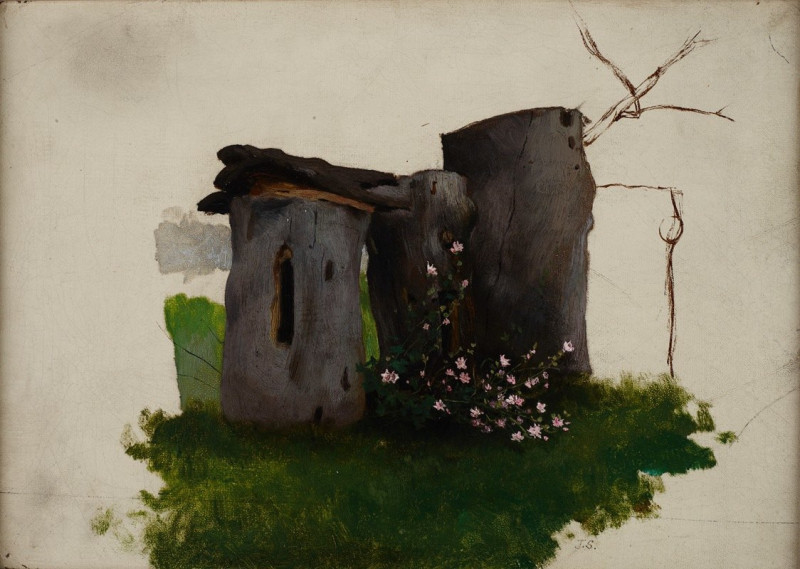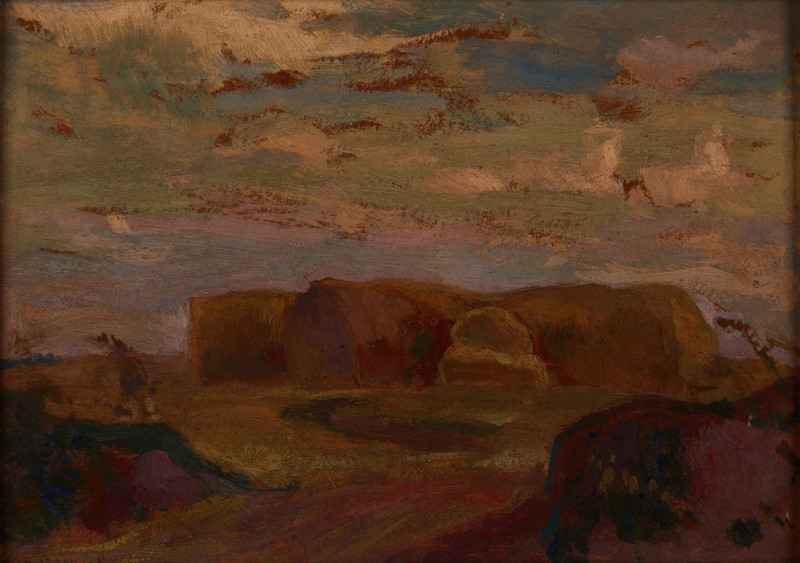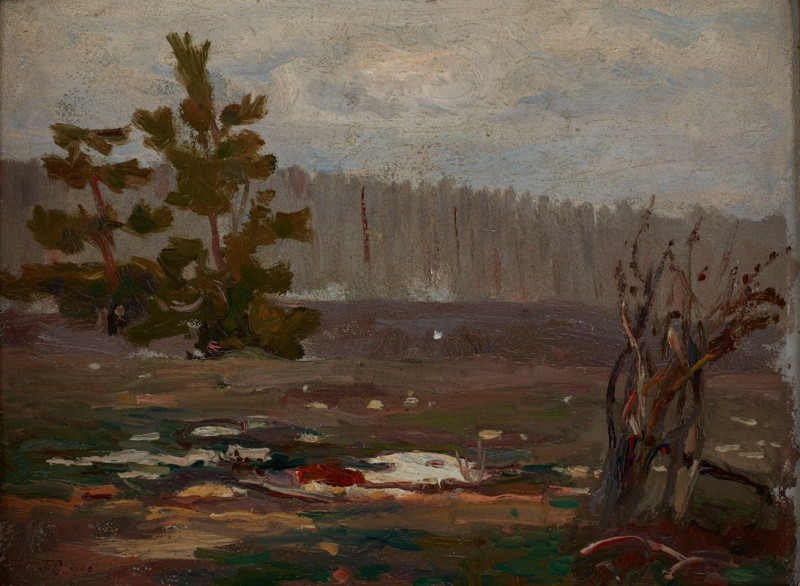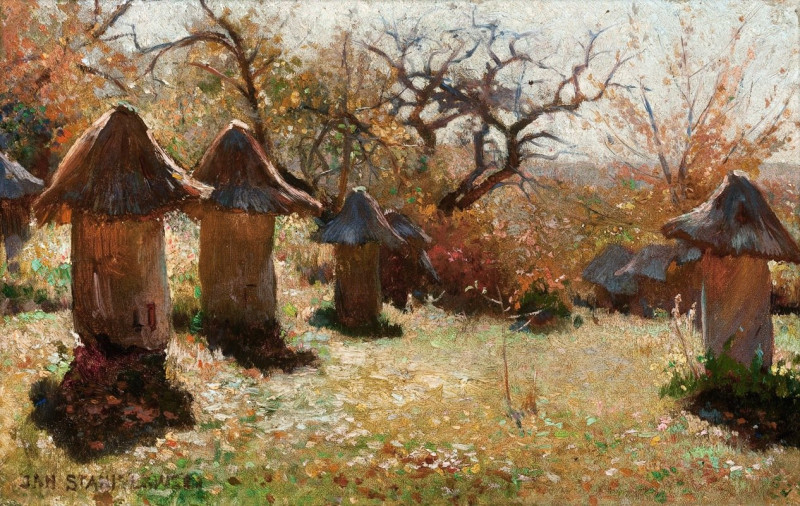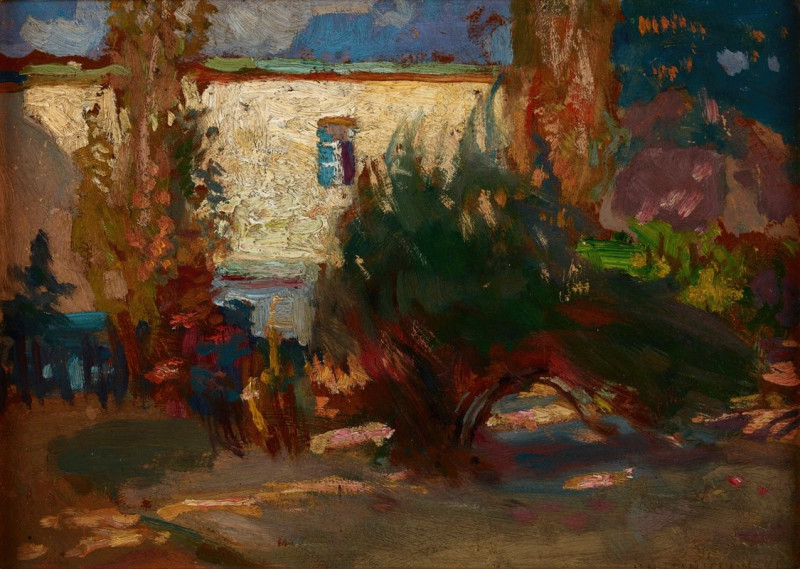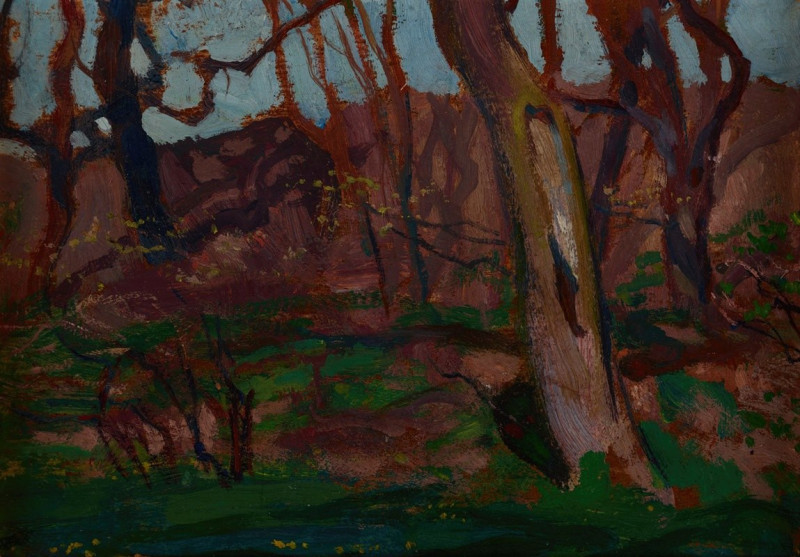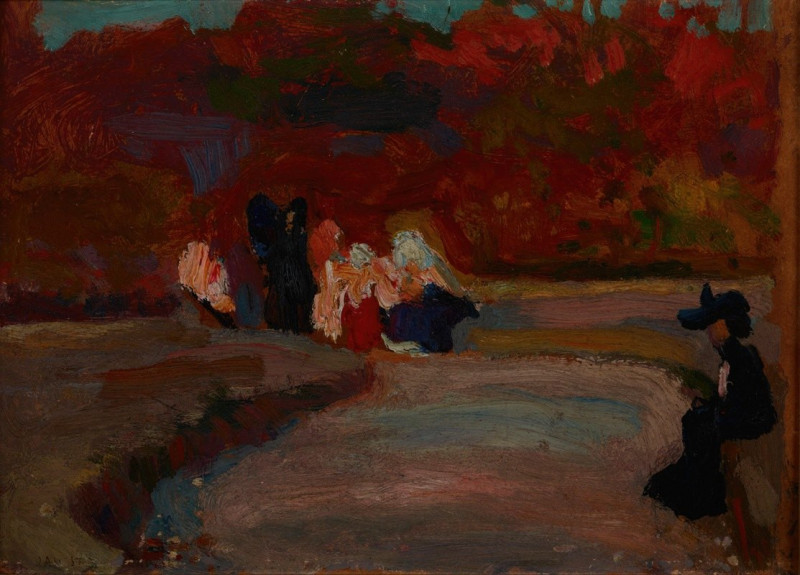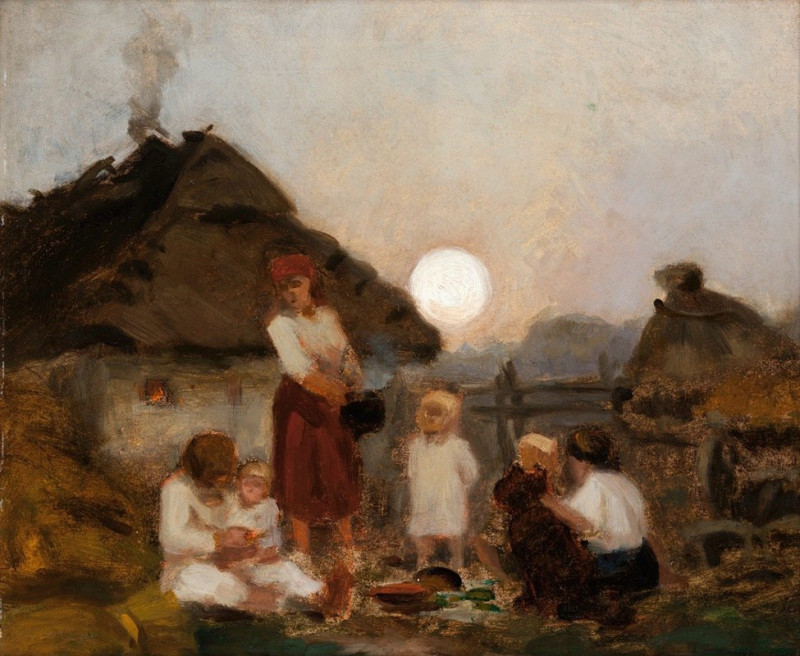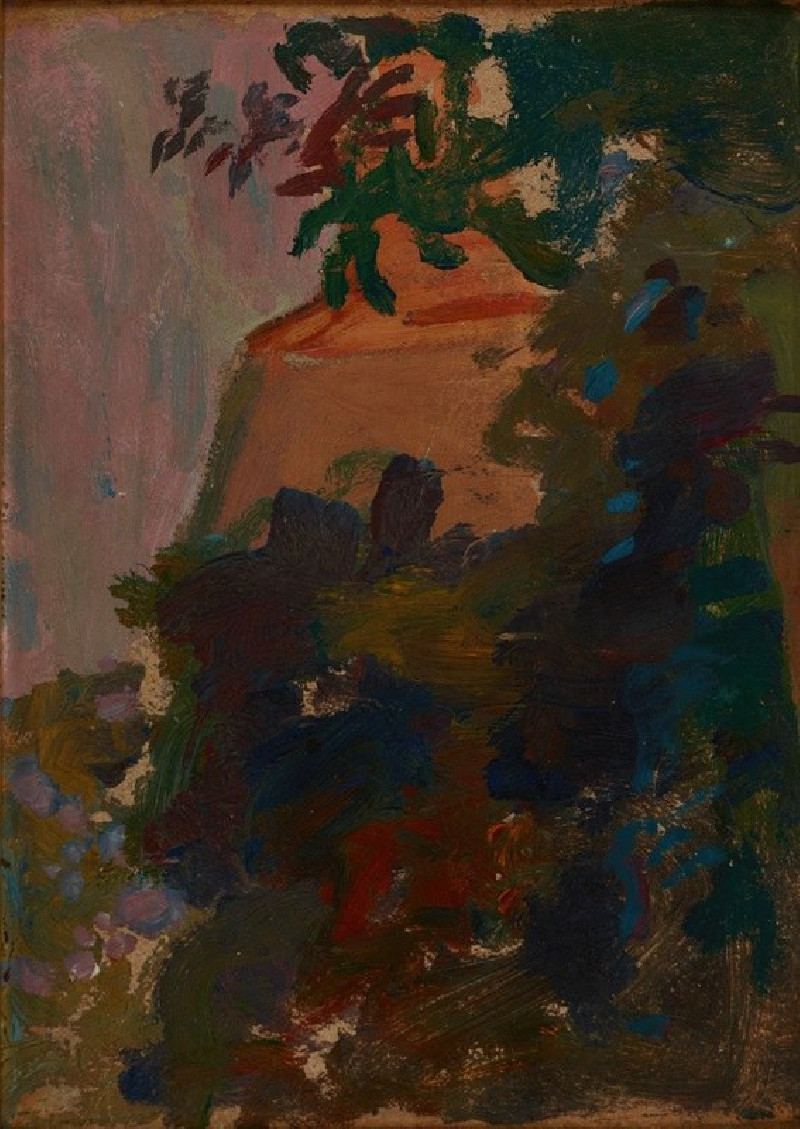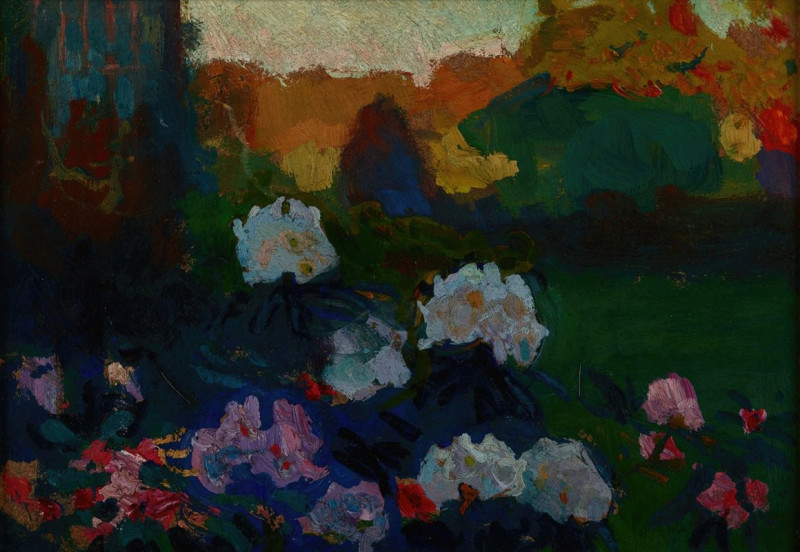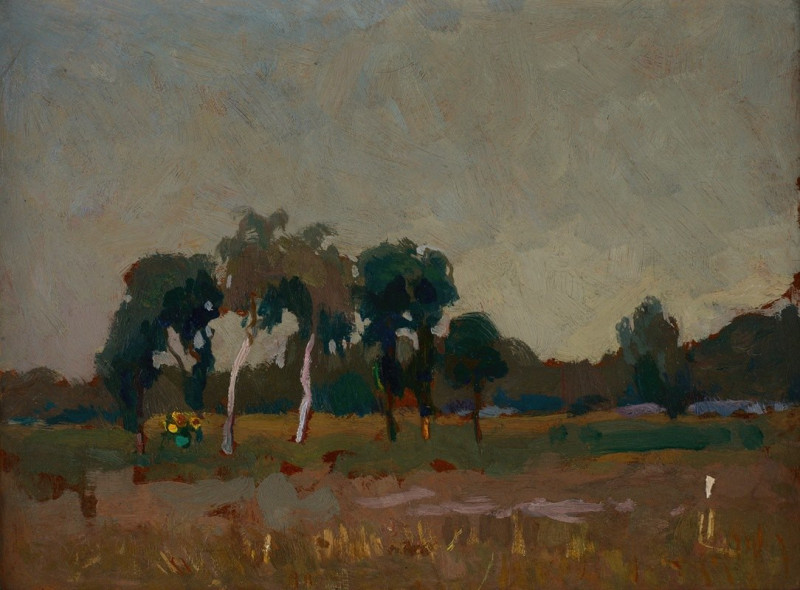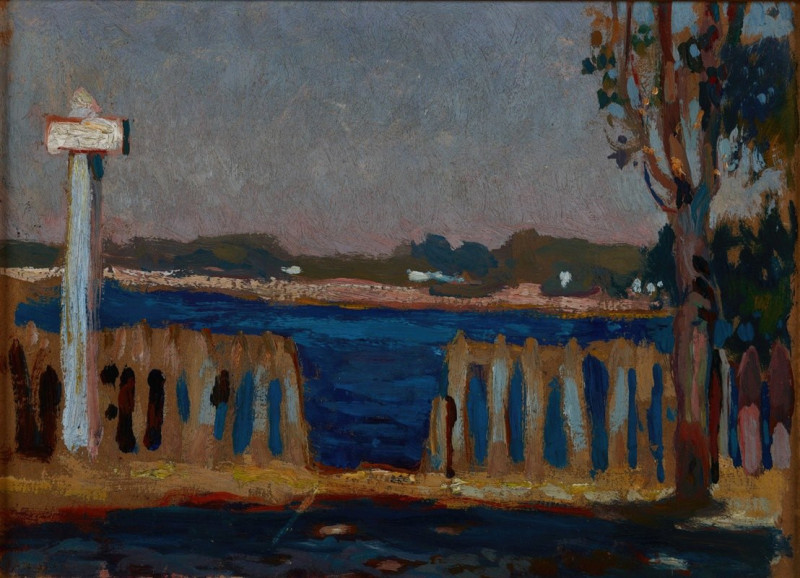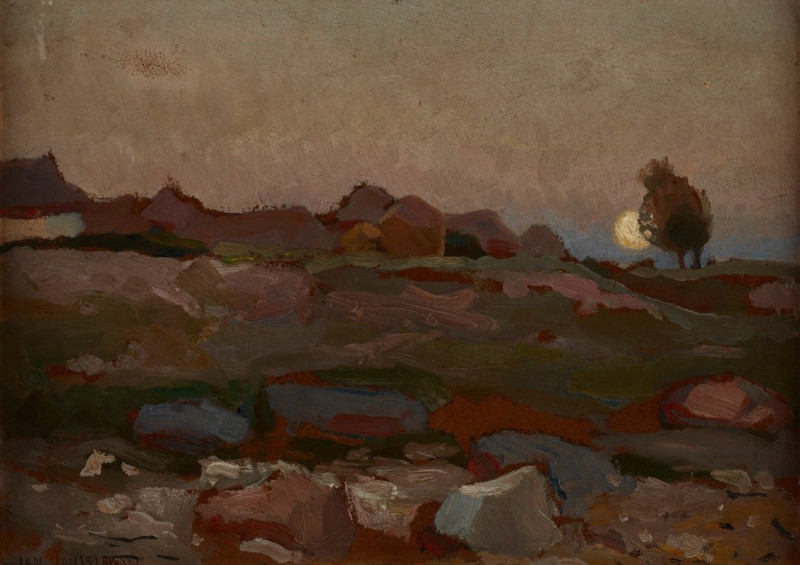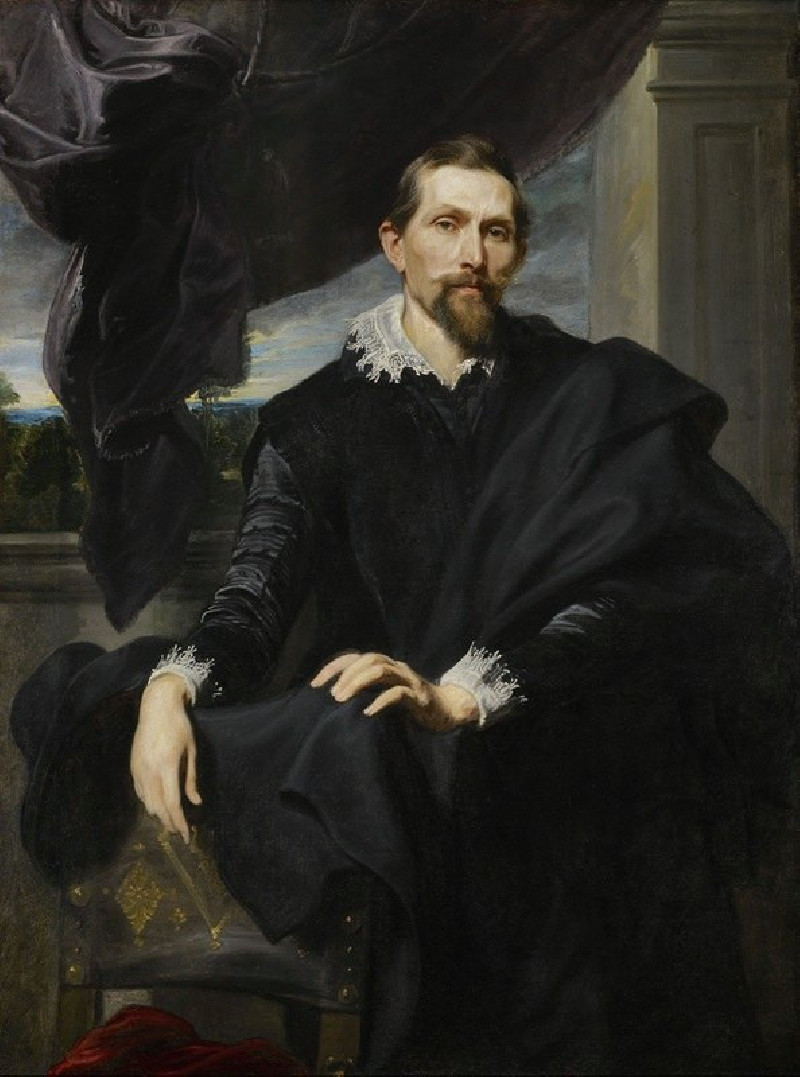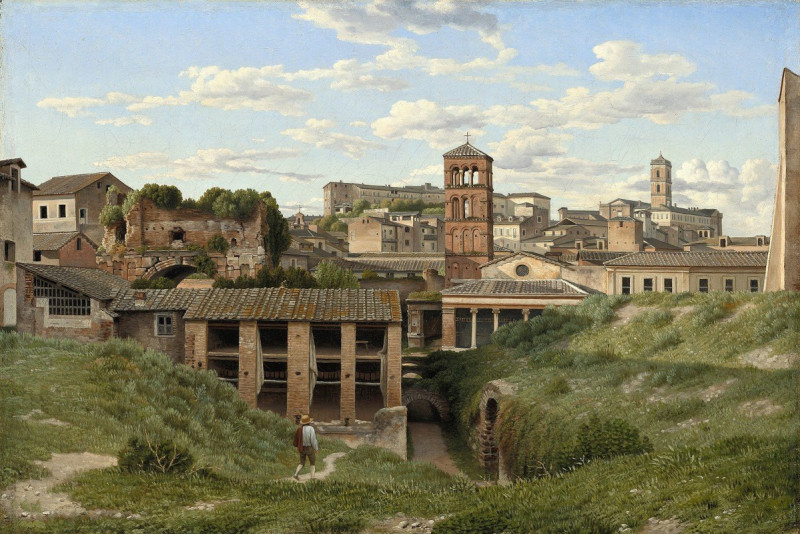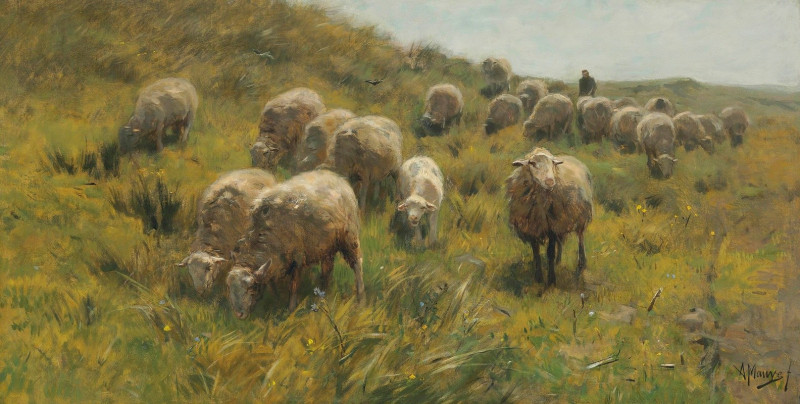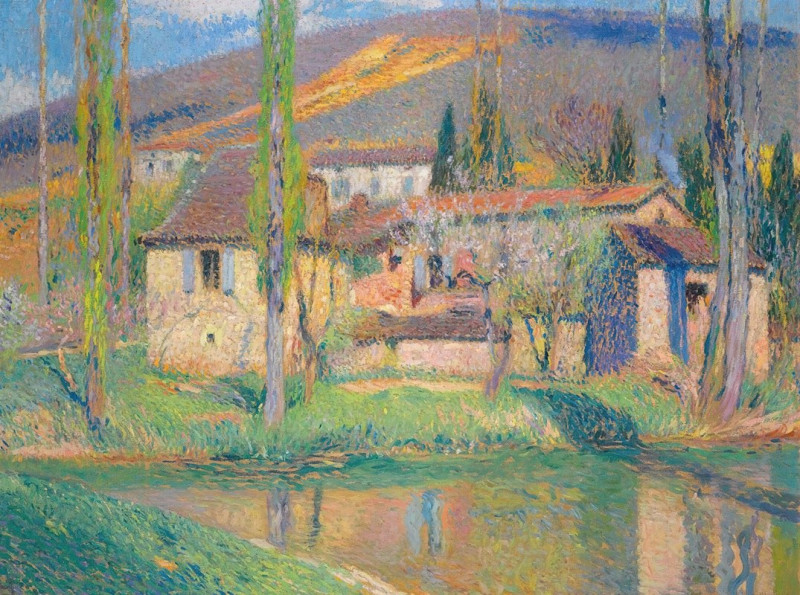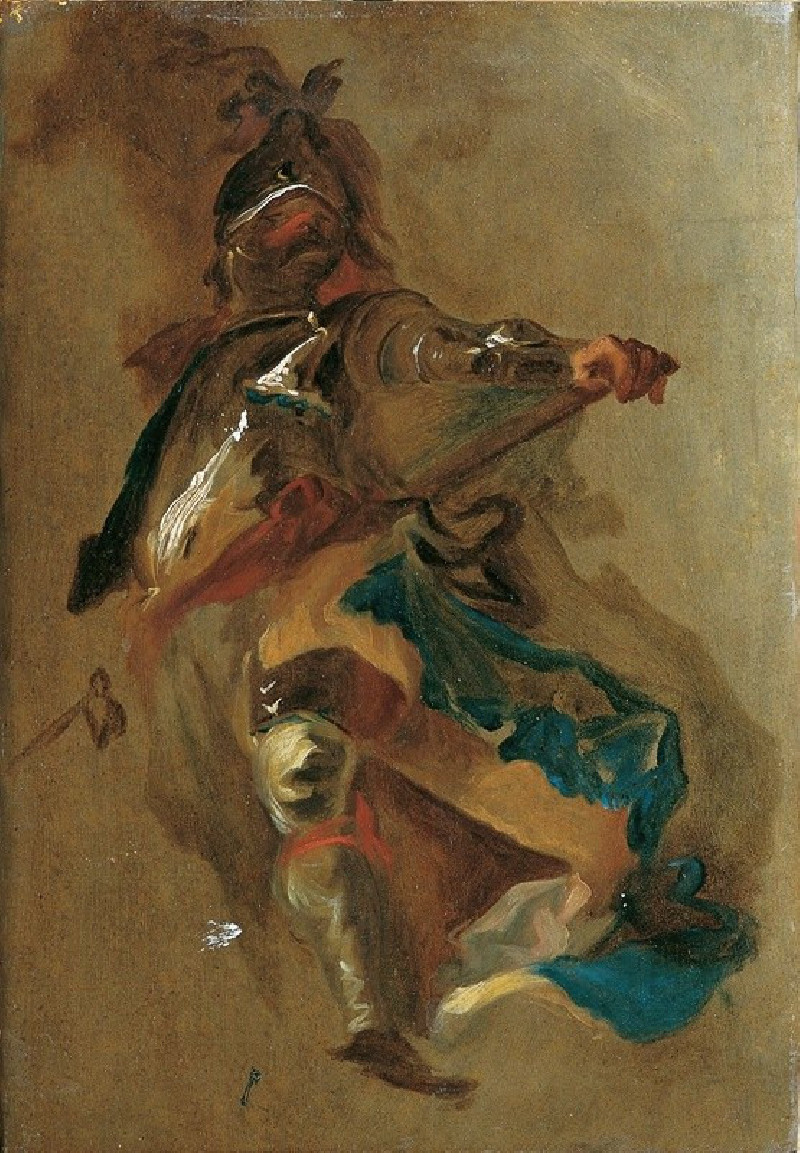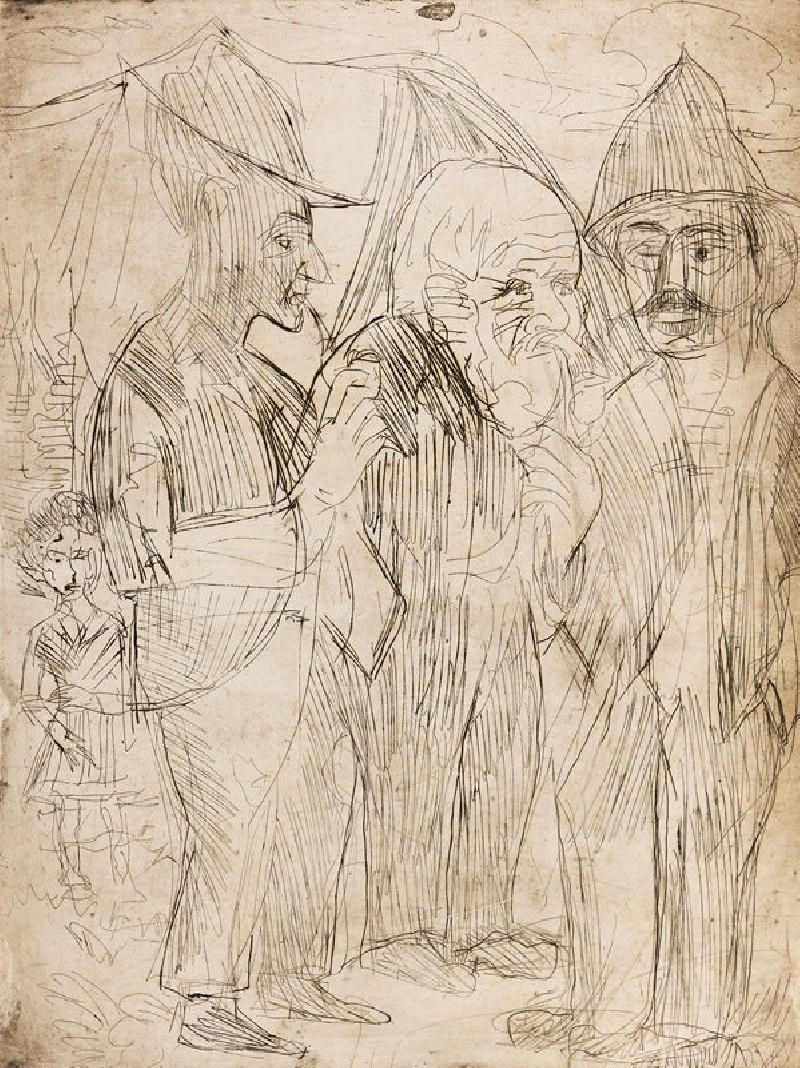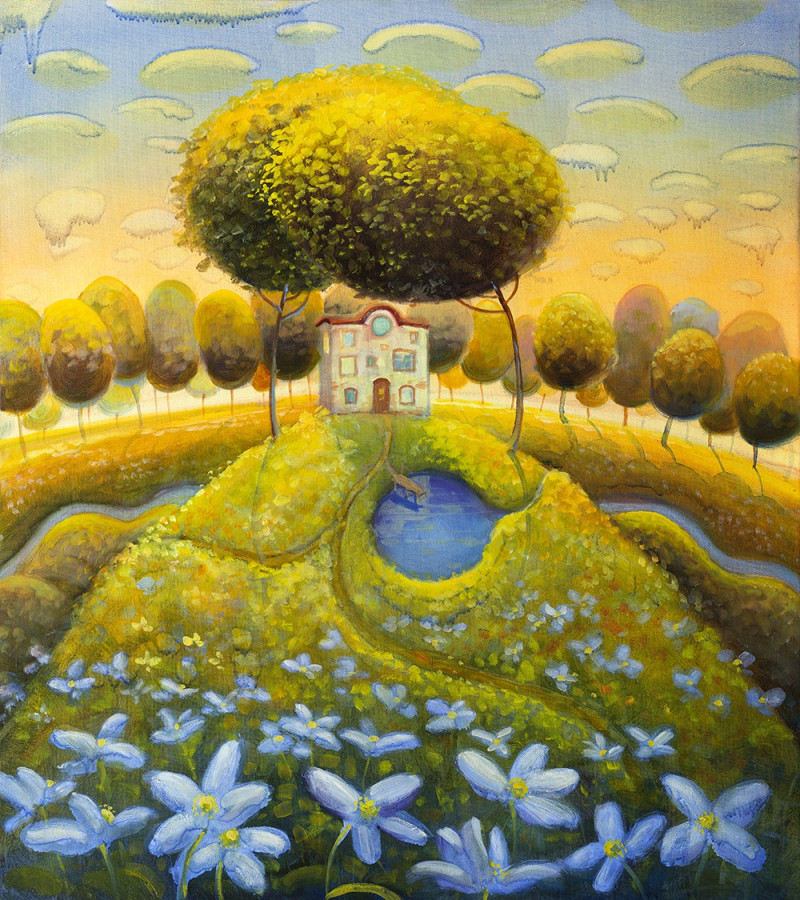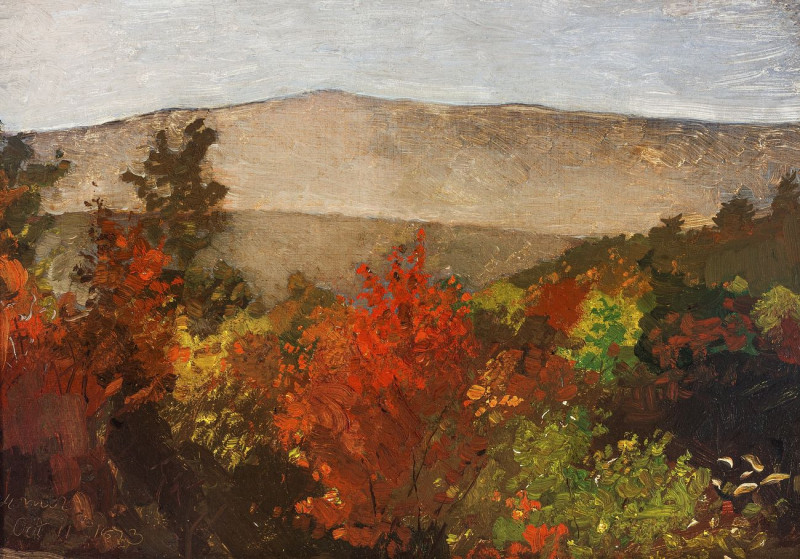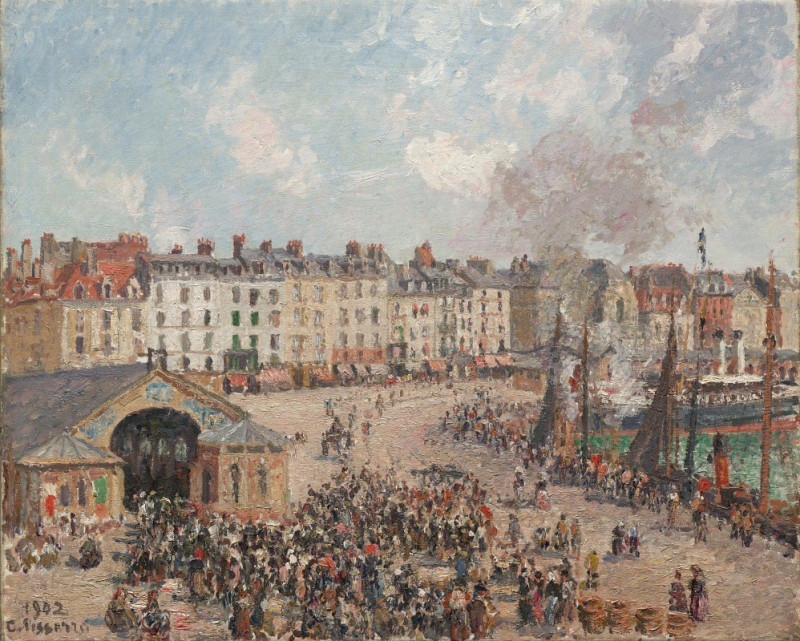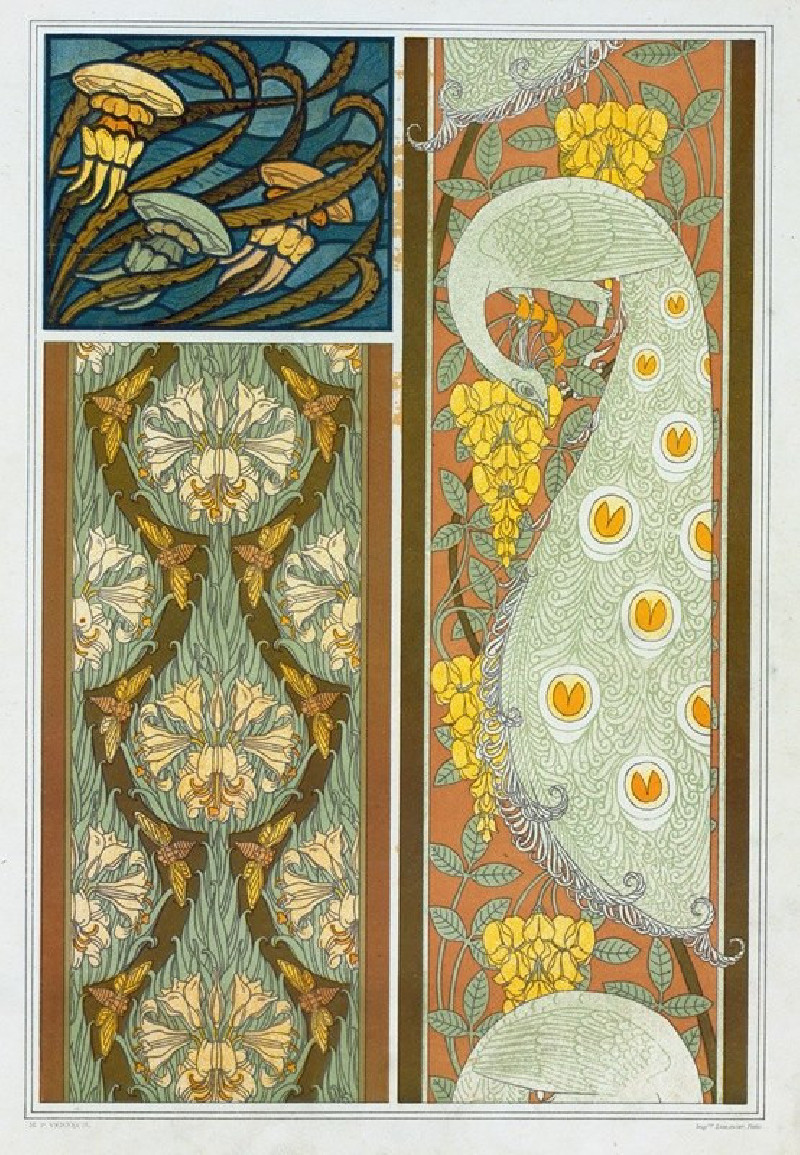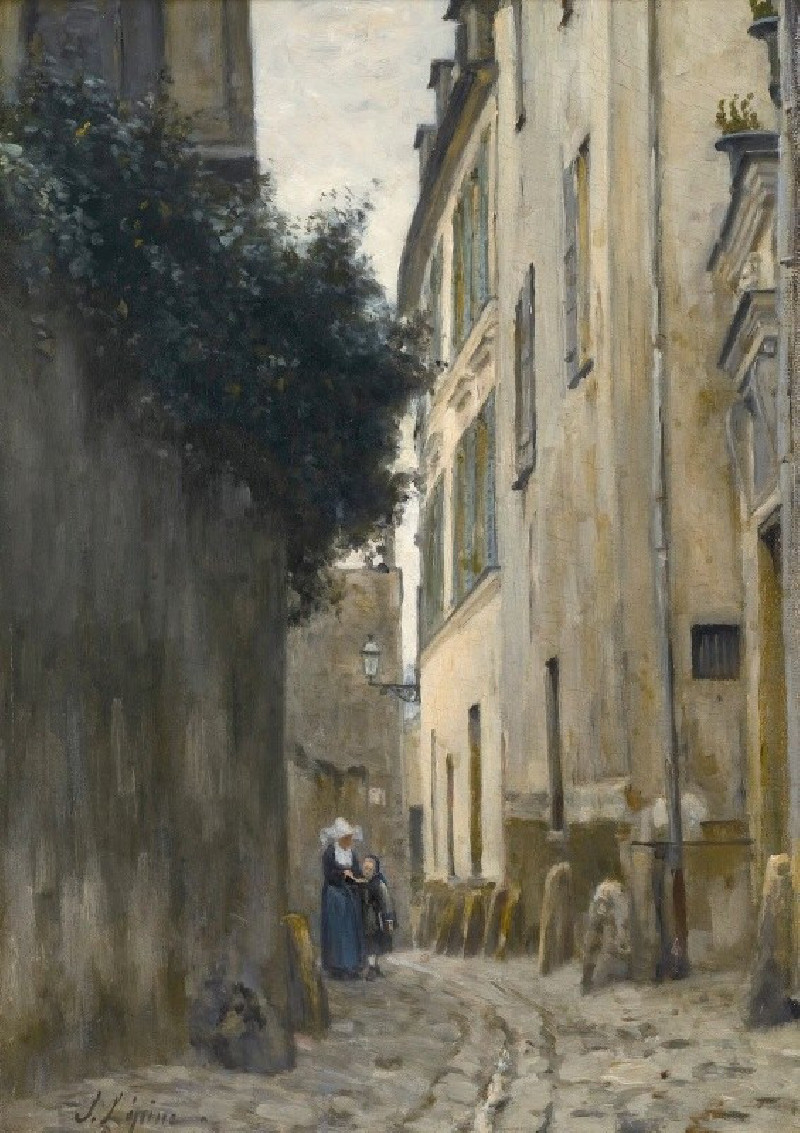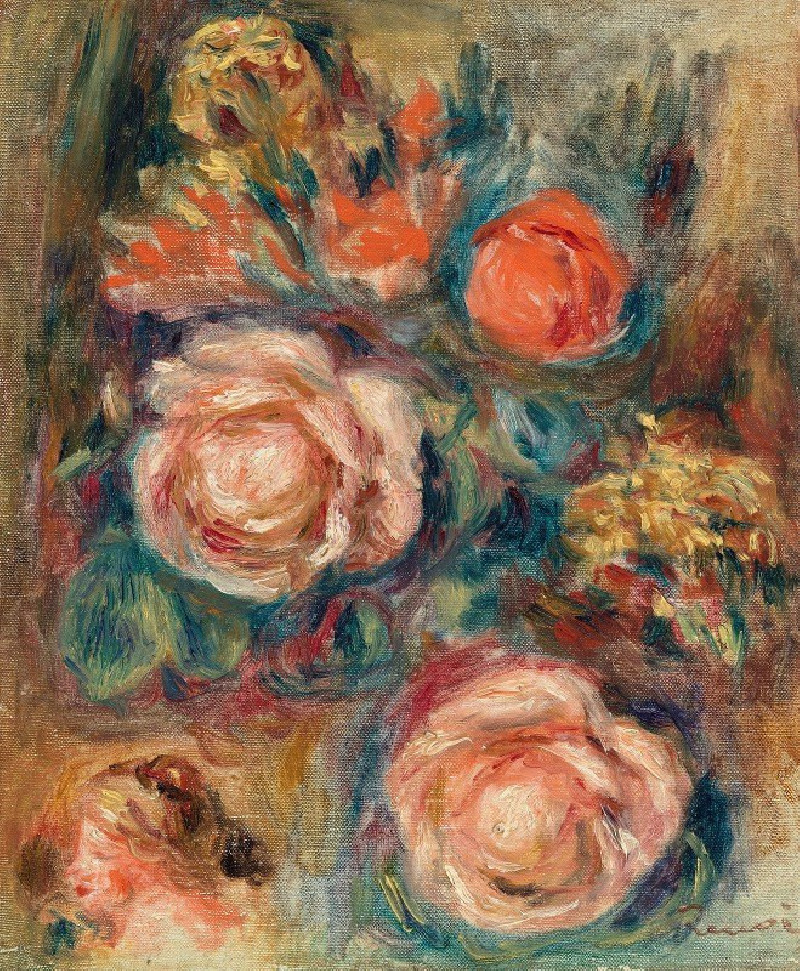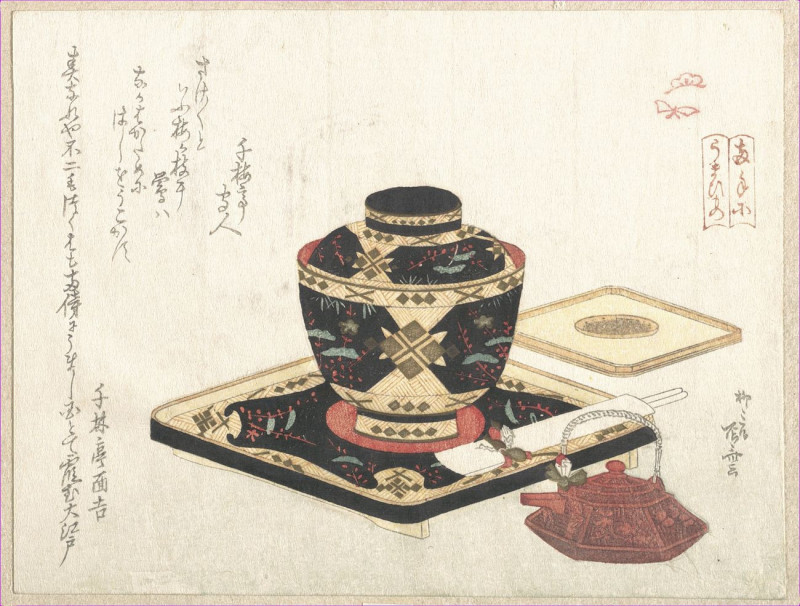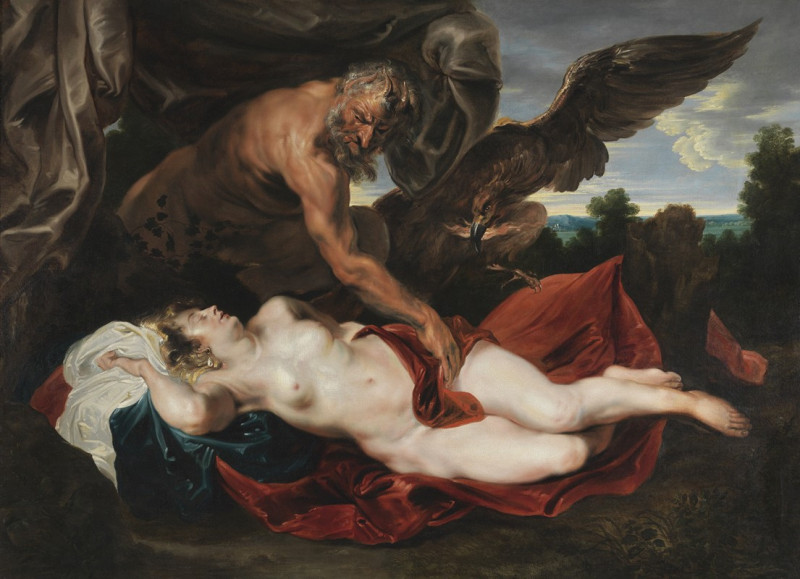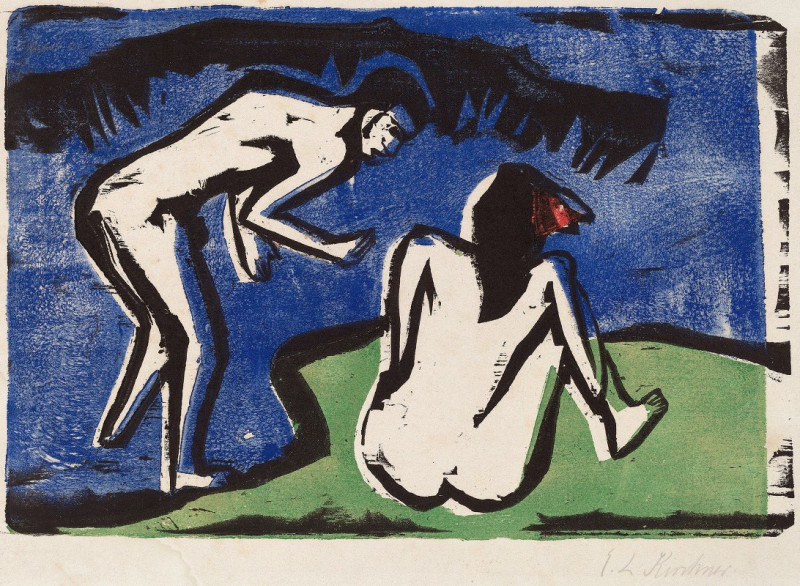Dusk (1897)
Technique: Giclée quality print
Recommended by our customers
More about this artwork
"Dusk" (1897) by Jan Stanisławski offers a contemplative vision of the evening settling over a serene landscape. This evocative piece is known for its rich textural depth and sophisticated interplay of colors that capture the fleeting moments between day and night.In the painting, the horizon is suffused with muted tones of pink and violet, suggesting the glow of the setting sun veiled by thick clouds. A tranquil body of water reflects the dusky sky, bordered by patches of vibrant green and sandy earth-tones that bring a distinct contrast to the subdued sky. On the right, a small, rustic boat with hints of red sits quietly on the shore, its presence adding a touch of life to the still scene.Stanisławski's masterful use of impasto, where the oil paint is laid on an area of the surface in very thick layers, is evident here, giving a dynamic texture to the landscape elements. This technique intensifies the emotional draw of the composition, inviting viewers to a moment of peace and reflection at day's end."Dusk" is a testament to Jan Stanisławski’s ability to evoke mood and atmosphere through his bold color palette and expressive brushwork.



